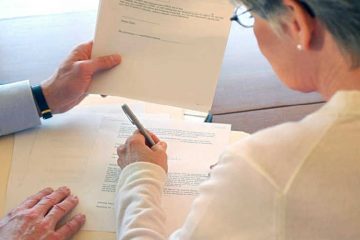Prostitution is one of the largest markets in the world. Unfortunately, people throughout the world work as both male and female sex workers every day. Often, these people work in poor conditions or illegally, which has led to a lot of countries cracking down on the sex trade.
In Australia, prostitution is something of a complicated subject. In some places, and in some ways, it’s legal. However, there are also a lot of situations where it isn’t legal, so it’s important to know the rules if you’re either a sex worker or a client. An experienced criminal lawyer will be able to help you out if you’ve been caught on the wrong side of the law, but it’s best not to put yourself in that position in the first place.
With this in mind, I’ve put together a quick overview of prostitution in Australia, outlining the main points of its legalities and illegalities.
When Is Prostitution Legal In Australia?
Although the exact rules surrounding prostitution in Australia differ by state and territory, many of the laws are consistent across the country. In general, prostitution is legal, but profiting from someone else’s prostitution isn’t – except in specific circumstances.
Some of the rules that are significantly different apply to brothels and the regulation of prostitution. In Western Australia, South Australia, Northern Territory, and Tasmania, independent sex work is legal, but brothels aren’t. Prostitution in these jurisdictions isn’t regulated on any level.
On the other hand, Queensland, New South Wales, Victoria, and the Australian Capital Territory take a more liberal approach to prostitution. All forms of sex work are legal, and prostitution is regulated by an industry watchdog.
New South Wales As A Case Study
Since the laws surrounding prostitution vary according to state and territory, it’s hard to outline all the rules in one short article. Because of this, I decided to look at New South Wales as a case study to show you how prostitution laws in Australia generally look.
New South Wales has traditionally been one of Australia’s most liberal states. It decriminalised prostitution in 1979, and made brothels legal under the Summary Offence Act 1988. Because of this, sex work in New South Wales is regulated and quite safe.
However, there are some circumstances where prostitution and sex work is still illegal in New South Wales. These include:
When you’re advertising or soliciting sex work in close proximity to a school.
Inducing or causing sex work in any way, shape, or form.
Living on the earnings of a sex worker other than yourself, except when you are the owner or manager of a brothel.
Advertising sex work in any way, shape, or form.
Causing or participating in any form of child or animal prostitution.
Running a brothel on premises that are advertised as a sauna or a massage parlor.
As you can imagine, most of Australia’s states have similar rules to these, but of course, they vary slightly.
Final Word
Although prostitution is decriminalised in most of Australia, it’s still important to make srue that you’re aware of the rules surrounding sex work in your particular area. If you’re a client, you could attract the attention of the police for using a sex worker in an area where it’s illegal. Similarly, prostitutes themselves can get in trouble for doing the wrong thing in the wrong place.


